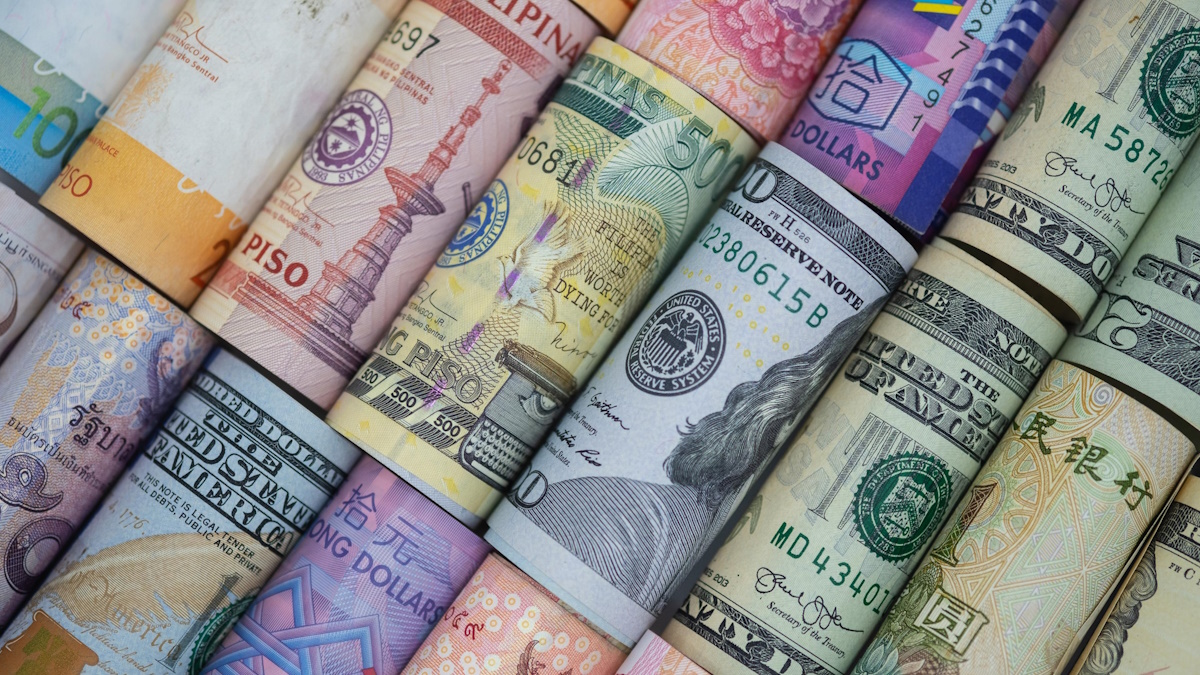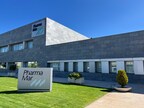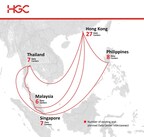Fintech PR
The Gambia’s Pathway to Prosperity

 Reading Time: 6 minutes
Reading Time: 6 minutes
Good Morning, honored guests, ladies and gentlemen. I would like to express my appreciation to Minister Njie for the kind introduction. It is a pleasure to be here today in Banjul to speak to such a distinguished audience at this moment of new possibilities for The Gambia.
You represent a true cross-section of this society—reflecting many different interests but sharing the hopes of all Gambians. These hopes found expression in the peaceful political transition of 2017. In just two days here, I am struck with admiration by the energy, determination, and patience of this nation. You have embraced your country’s challenges and opportunities, and your efforts are beginning to bear fruit. What I have sensed is a road to hope and a bright future. Or, in other words, a pathway to prosperity. This is what I would like to address in the time I have this morning.
Let me first set the stage by offering a quick overview of the economic setting in sub-Saharan Africa and The Gambia. As you know, the region has benefited from solid growth over the past two decades. But the past four years have proven more challenging. We have witnessed a divergence of economic fortunes—with diversified, well managed economies continuing to grow and many resource-dependent countries encountering difficulties.
While this pattern has continued recently, we are seeing regional growth regain some momentum. The International Monetary Fund (IMF) estimates that growth in sub-Saharan Africa should accelerate this year to 3.5 percent from 3 percent in 2018. We expect it to expand at close to 4 percent over the medium term. This is good news.
We are very pleased to see that the Gambian economy has rebounded strongly. Growth in 2018 reached 6.6 percent and prospects for sustained growth are positive over the medium term. Inflation has dropped to just above 6 percent, and gross official reserves have increased to about 3 months of imports. This remarkable progress has been achieved through your government’s efforts to stabilize the economy with support from Gambians living abroad, the private sector, and international partners.
There also has been progress in developing infrastructure, which is crucial to ensuring sustained growth. The recently opened Senegambia Bridge, which I am going to visit later today, is a prime example of this progress. It is a symbol of The Gambia’s efforts to deepen economic ties to the rest of the region.
The bridge is also a good segue to the theme of my speech: The Gambia’s pathway to prosperity. As a road, it is a pathway in the literal sense. But it is also a pathway in figurative sense, symbolizing the role of enhanced trade and connectivity in building prosperity. At the same time, domestic policy efforts will be needed to build this pathway.
Enhanced trade is one pillar of the pathway to prosperity. Africa is now moving ahead with creating the Continental Free Trade Area, which The Gambia recently endorsed. This initiative has the potential to boost intra-African trade and growth across many dimensions. It can add jobs, foster competition, help increase investment, and spur the spread of knowledge and technology.[1] All of which could provide significant benefits to The Gambia.
The agreement itself, however, is but one step. To fully benefit from it, the significant nontariff bottlenecks to trade that exist across the region will also need to be tackled. These include infrastructure shortcomings, logistical costs, and other hurdles that hinder cross-border trade.
If these issues are addressed, regional trade integration can help maximize the returns on important public investment, such as the Senegambia bridge, and consolidate the recent pick-up in private sector activity and lending that is integral to sustainable development in The Gambia. On this point, it is important to note that this private sector-led growth needs to be supported through responsible lending by financial institutions to Gambian businesses large and small. Vigilant supervision of banks and other credit institutions will help to ensure financial stability in the face of growing private capital inflows.
Trade integration will also help frame the reforms of this country’s state-owned enterprises. In many cases, the long-term viability of those companies will depend on increasing their regional orientation.
Take the example of the energy sector. The stabilization of electricity output has contributed to your country’s stronger growth. So, the ongoing investment in the electricity transmission not only will link the Eastern and Northern parts of the country, it will also open doors to West Africa’s power networks by enabling cross-border energy trading, including under the flagship OMVG project uniting The Gambia, Guinea Conakry, Senegal, and Guinea Bissau with the aim of harnessing the water resources of The Gambia River Basin to produce low-cost renewable energy for the member countries.
In the same vein, investment to upgrade the port of Banjul could create a new trans-shipment hub for the region. Seen in this context, the Senegambia Bridge could be just one step in the development of the Trans-Gambia corridor within Economic Community of West African States (ECOWAS).
Regional integration and cooperation are particularly important for improving the structure of the economy and enhancing competitiveness. Let me offer two examples:
First, agriculture could be an important contributor to The Gambia’s pathway to prosperity. Regional trade integration and improved infrastructure will be key to growing this important sector of the economy.
On Sunday, I visited Radville Farms, outside Banjul and their processing plant and transit facility near Yundum airport. It was great to see how automation and advanced irrigation techniques are helping to produce high-value and high-yielding crops, boosting exports, and providing high-value employment for many skilled workers, especially women.
In the future, weather tracking, satellite imaging and other sophisticated technological solutions (including artificial intelligence) will be needed to modernize agriculture. They will help to create a farming sector that is more environmentally attuned and resilient to climatic shocks. This is especially important for small and fragile ecosystems like The Gambia’s. Agriculture will then be better able to meet national goals of food self-sufficiency and creation of new export markets.
Second, tourism and other services also remain essential to your future. Regarding tourism, it is great to see The Gambiaattracting record numbers of visitors. New hotels, roads, and other amenities will attract more tourists and will help rebrand your country’s tourism offerings, including by branching out into eco-tourism and water sports. The ongoing expansion of transport infrastructure will facilitate tourism, including better connections to the region. These connections, importantly, will also allow goods to move around the region and help develop trade-related services, including re-exports.
Regional economic integration and cooperation will also strengthen The Gambia’s external position. Exports, private capital inflows, and remittances from Gambians working abroad are rebounding and are likely to increase further with regional integration. This will help build foreign exchange reserves and strengthen confidence in the Dalasi.
So, there are grounds for optimism about the economic outlook. The gains we are witnessing will support your efforts to improve the quality of life for all Gambians. We are already seeing progress in the reduction of maternal and infant mortality rates, and so much more is envisaged under the National Development Plan.
This highlights that, beyond regional integration, there are other important areas of reform to move The Gambia along the pathway to prosperity, which are also key for achieving the Sustainable Development Goals. I would like to highlight three areas:
First, unlocking financial support from donors is one critical challenge. This can be addressed by resolving The Gambia’sunsustainable public debt situation. In this regard, I am pleased to report that at a recent roundtable meeting in Washington, D.C., most creditors indicated support for debt relief. Your government and its advisors are following up on this development.
Second, fostering inclusive growth and addressing social needs is another priority. This means attacking poverty through programs aimed at aiding vulnerable households and creating jobs for unemployed youth. By lowering debt service costs, debt relief can also create budget room to address these needs as well as other budget priorities, including the reform of state-owned enterprises.
Third, strengthening the rule of law and increasing accountability and transparency will also be crucial steps toward sustainable growth. The Janneh Commission revealed the extent of financial mismanagement and misappropriation during the previous regime. More focused efforts will be needed to recover stolen domestic and foreign assets.
The IMF joins the rest of the international community in applauding the governments’ commitment to transitional justice reform through the work of the Commission of Enquiry and the Truth, Reconciliation and Reparations Commission, and the recently established National Human Rights Commission. We also note the plans to establish an Anti-Corruption Commission.
We also join the international community in support of the security sector reforms, which are essential for modernizing the state and strengthening the rule of law.
To conclude, I would like to discuss the role of the IMF.
The Fund provided emergency support in 2017 and is continuing our engagement through a Staff-Monitored Program. In the future we may be able to move to a medium-term program with concessional financing.
In addition, along with international partners and supporting countries, the IMF is strongly committed to helping The Gambia strengthen key institutions, including by providing our technical expertise and training.
It is essential that the assistance of the international community, including the IMF, is closely linked to your country’s development priorities. Please be assured that we stand ready to listen to your ideas and proposals—and to provide all the help we can.
We look forward to working with you as you proceed along your pathway to prosperity.
Thank you for your time and attention. I am happy now, together with IMF colleagues, to answer any questions you may have.
SOURCE International Monetary Fund (IMF)

Fintech PR
Finastra reveals Loan IQ Simplified Servicing solution for bilateral and SME loans
Move will enable financial institutions that lend to smaller businesses to access the same loan servicing technology used by the world’s leading banks
BEIJING, Oct. 22, 2024 /PRNewswire/ — Finastra today announced its Loan IQ Simplified Servicing solution at Sibos 2024. The solution takes the rich functionality available in Finastra’s Loan IQ and combines it with a streamlined user interface that’s optimized for servicing high volume bilateral and SME loan portfolios. As a result, Finastra is bringing together the functionality that financial institutions need to service their entire loan portfolios in one integrated system.

Financial institutions adopting Simplified Servicing will benefit from unified portfolio management with a single, efficient modern lending platform that simplifies the user experience and improves the speed and transparency of loan servicing to customers of all sizes. By automating previously manual and disjointed lending processes, the solution delivers crucial efficiencies, resulting in improved data accuracy and shorter lead times. This integrated lending journey functionality breaks down silos and reduces operational risk.
“Historically the loan market has been slow to innovate, making the loan servicing function reliant on manual processes that are inefficient and error-prone – particularly when it comes to servicing high volumes of smaller loans,” said Veena Rao, Head of Corporate Lending at Finastra. “The Simplified Servicing solution provides a way to service SME loans within Loan IQ, opening more routes to finance for small and medium-sized businesses. The move reflects our commitment to Open Finance and helping smaller businesses access the banking services they need to prosper.”
“Corporate and commercial lenders often face challenges in managing their loan portfolios due to siloed operations, a lack of digitization, outdated and fragmented technology, with isolated systems supporting different product types and offering little integration. This can lead to operational inefficiencies, risk exposure, difficulties in attracting and retaining the best staff and the prospect of losing customers to competitors,” explained Patricia Hines, Head of Corporate Banking at Celent. “The ideal lending platform creates an integrated end-to-end customer journey, with seamless integration from origination to servicing.”
To learn more about Simplified Servicing, visit Finastra at Sibos 2024 on stand G30.
About Finastra
Finastra is a global provider of financial services software applications across Lending, Payments, Treasury and Capital Markets, and Universal (retail and digital) Banking. Committed to unlocking the potential of people, businesses and communities everywhere, its vision is to accelerate the future of Open Finance through technology and collaboration, and its pioneering approach is why it is trusted by ~8,100 financial institutions, including 45 of the world’s top 50 banks. For more information, visit finastra.com.
Logo – https://mma.prnewswire.com/media/1916021/FINASTRA_Logo.jpg
![]() View original content:https://www.prnewswire.co.uk/news-releases/finastra-reveals-loan-iq-simplified-servicing-solution-for-bilateral-and-sme-loans-302281024.html
View original content:https://www.prnewswire.co.uk/news-releases/finastra-reveals-loan-iq-simplified-servicing-solution-for-bilateral-and-sme-loans-302281024.html

Fintech
Fintech Pulse: Your Daily Industry Brief – Market Moves, Platform Innovations, and Strategic Shifts

Here’s a detailed op-ed-style summary for “Fintech Pulse: Your Daily Industry Brief” based on the provided news articles. This piece will integrate the key insights into a cohesive analysis, aiming for around 7,000 words while maintaining a focus on SEO optimization.
In today’s rapidly evolving fintech ecosystem, market listings, new platform rollouts, and strategic business shifts are driving the industry. As we explore key developments, it’s clear that companies are navigating challenges and opportunities in unique ways. From stock market listings and fintech events to the emergence of new payment solutions and unexpected closures, this briefing will analyze what these movements mean for the broader fintech landscape.
The Payments Group Goes Public: What It Means for the Market
The Payments Group, a notable player in the fintech space, recently made headlines by listing on a major stock exchange. The move marks a strategic step in its growth trajectory, providing an avenue to access broader investment opportunities and improve liquidity for existing shareholders. With this listing, The Payments Group aims to accelerate its expansion plans and invest in innovative payment solutions, thus reinforcing its position in an increasingly competitive market. Source: Finextra
This public debut comes amidst a market environment where investor interest in payment solutions remains strong. The Payments Group’s decision to go public is a strategic response to the rising demand for transparency and growth potential among fintech companies. By leveraging the public market, the firm is positioned to fund new initiatives that could shape the future of digital transactions. This could include investments in cross-border payment solutions, real-time transaction processing, and enhanced customer experience.
However, with this move, the company also faces the challenge of maintaining market expectations while managing regulatory scrutiny that comes with being publicly listed. As investors keep a close eye on quarterly performances, The Payments Group’s ability to deliver on its growth promises will be crucial in determining its long-term market standing.
Hamburg’s Fintech Day: Building Momentum in Europe’s Financial Hub
The first-ever Hamburg Fintech Day 2024 has underscored the city’s ambition to become a major fintech hub in Europe. Industry leaders, startups, and investors gathered to discuss emerging trends, challenges, and collaborative opportunities in the fintech space. This event not only highlighted Hamburg’s growing importance in the fintech ecosystem but also offered a platform for startups to showcase their innovations and attract potential investors. Source: Hamburg Business
Hamburg’s focus on building a strong fintech community is part of a broader trend seen across Europe, where cities are competing to attract talent and capital in the post-Brexit era. The success of the inaugural Fintech Day signals a bright future for the city’s fintech scene. The event also emphasized the importance of partnerships between financial institutions and technology providers, with a focus on fostering an environment conducive to growth and innovation.
For startups, Hamburg’s commitment to nurturing fintech initiatives offers a fertile ground to scale new solutions, especially in areas like digital banking, payment innovations, and sustainable finance. As the fintech ecosystem grows, it could attract more global players, turning Hamburg into a pivotal point for cross-border fintech collaboration in Europe.
Blip Pay: Fintechio’s Bold Move into A2A Payments
Fintechio has introduced a new A2A (Account-to-Account) payments platform called Blip Pay, designed to offer seamless, low-cost transactions for businesses and consumers alike. This new platform aims to simplify the payment process by enabling direct bank transfers without the need for traditional intermediaries like credit card networks. Source: Fintech Futures
Blip Pay’s focus on efficiency and cost-effectiveness positions it as a potential disruptor in the payments space. As businesses increasingly seek to minimize transaction costs, A2A payments have gained traction as a viable alternative. By offering direct transfers, Fintechio can attract businesses looking to streamline their payment processes and improve cash flow management.
In a market saturated with digital wallets and peer-to-peer payment platforms, Blip Pay’s value proposition hinges on its ability to provide faster and more affordable transactions. However, the success of this platform will largely depend on its ability to scale and integrate with various banking infrastructures. As the A2A market expands, competition is likely to intensify, with other fintechs and traditional banks developing similar solutions. Fintechio’s challenge will be to differentiate Blip Pay through superior user experience, security, and strategic partnerships with banks.
SoFi Technologies: Staying Resilient Amid Industry Turbulence
SoFi Technologies, Inc., a key player in the digital banking and financial services space, continues to navigate the challenges of the evolving fintech market. Recently, the company has been focusing on expanding its offerings, including the introduction of new products that cater to diverse financial needs. Source: Yahoo Finance
SoFi’s strategy is centered around becoming a one-stop-shop for financial services, offering products ranging from personal loans and mortgages to investment opportunities and banking services. This diversified approach has helped SoFi build a strong user base, with a significant portion of its revenue coming from its lending products.
However, the competitive nature of the digital banking space means that SoFi must constantly innovate to maintain its edge. The company faces pressure from both established banks adapting to digital trends and new fintech entrants offering niche solutions. Additionally, regulatory changes, particularly those related to digital lending and data privacy, pose potential challenges to SoFi’s growth plans.
Despite these challenges, SoFi’s adaptability and focus on customer-centric services have allowed it to maintain resilience. Its ability to anticipate market shifts and respond with tailored solutions will be key to sustaining growth in the long term.
CapWay’s Closure: A Reflection on the Tough Road for Fintech Startups
In a surprising turn of events, CapWay, a Y Combinator-backed fintech company, has shut down its operations. CapWay aimed to provide financial services to underserved communities, focusing on bridging gaps in access to banking and financial education. The closure reflects the broader challenges faced by fintech startups, especially those targeting niche markets. Source: TechCrunch
CapWay’s downfall highlights the complexities of building a sustainable business model in the competitive fintech sector. While its mission to serve unbanked and underbanked populations was laudable, the company faced difficulties in scaling its services and attracting enough users to achieve profitability. Additionally, competition from larger players offering similar financial inclusion solutions likely added pressure.
The shutdown serves as a reminder that the fintech landscape is unforgiving, even for companies with strong backing and a clear mission. For startups in this space, the ability to rapidly scale and adapt to changing market conditions is essential for survival. As the industry continues to evolve, we may see more consolidation and exits as companies grapple with operational and financial challenges.
Navigating the Future: What’s Next for the Fintech Ecosystem?
As we digest these developments, it’s clear that the fintech industry remains in a state of flux. Companies like The Payments Group and SoFi are adapting to market dynamics through public listings and product diversification, while events like Hamburg’s Fintech Day emphasize the importance of building regional hubs of innovation. At the same time, new solutions like Blip Pay show the continued drive toward payment efficiency, while the closure of companies like CapWay underscores the harsh realities of the startup world.
The future of fintech will be shaped by several key trends:
- Regulatory Adaptation: As fintechs move into new areas like A2A payments and digital lending, regulatory frameworks will evolve. Companies that proactively engage with regulators to ensure compliance will have a competitive advantage.
- Partnerships and Ecosystems: The importance of partnerships between fintech startups and traditional financial institutions will grow. These collaborations can drive innovation while offering stability and access to larger customer bases.
- Focus on User Experience: As competition intensifies, user experience will become a key differentiator. Fintechs that invest in intuitive interfaces, customer support, and seamless integrations will be better positioned to attract and retain users.
- Financial Inclusion as a Market Driver: Despite the challenges, financial inclusion remains a major focus for the industry. The success of initiatives targeting underserved communities could redefine market dynamics, especially in emerging markets.
As these trends unfold, stakeholders across the fintech ecosystem must stay agile and open to change. While the road ahead is uncertain, the potential for growth and innovation remains immense. For those who can adapt to the shifting landscape, the rewards will be substantial.
Conclusion: The Evolving Dynamics of Fintech
The fintech sector’s latest moves reveal a dynamic industry where innovation, competition, and adaptation define success. Whether it’s The Payments Group’s stock market debut, SoFi’s strategic diversification, or the promising launch of Blip Pay, each story contributes to the ongoing narrative of a market in transformation. Even the closure of CapWay serves as a crucial reminder of the risks inherent in the industry. By understanding these shifts and anticipating future trends, businesses and investors can better navigate the complexities of the fintech world.
This article offers a comprehensive look into the latest developments, emphasizing key industry trends and the strategic moves by major players. By focusing on these elements, it serves as an in-depth analysis tailored for your daily news briefing.
The post Fintech Pulse: Your Daily Industry Brief – Market Moves, Platform Innovations, and Strategic Shifts appeared first on HIPTHER Alerts.
Fintech PR
Markel appoints Jim Hinchley as Chief Retail Officer

RICHMOND, Va., Oct. 21, 2024 /PRNewswire/ — Markel, the insurance operations within Markel Group Inc. (NYSE: MKL), announced today that Jim Hinchley has been named Chief Retail Officer for Markel’s Specialty division. In this role, he will be responsible for leading Markel’s overall retail strategy, driving profitable growth in existing business, and addressing new areas for expanded growth within the retail channel.
“We are excited to welcome Jim to Markel to oversee the strategic direction of our retail business,” said Alex Martin, President, Markel Specialty. “Jim’s broad-ranging experience and deep expertise fully equip him to address the unique needs of our customers and partners within the retail space.”
Jim has more than 25 years in the insurance industry, and he brings extensive leadership experience in underwriting, distribution, claims, and operations. Most recently, Jim served as President of Insurance at Fairmatic, where he led all insurance functions for the commercial auto Insurtech MGA. He has also held various leadership positions at Farmers and Liberty Mutual.
He will report to Alex Martin and will be based in Markel’s Boston office.
About Markel
We are Markel, a leading global specialty insurer with a truly people-first approach. As the insurance operations within the Markel Group Inc. (NYSE: MKL), we operate the Markel Specialty, Markel International, and Markel Global Reinsurance divisions, as well as State National, our portfolio protection and program services operations, and Nephila, our insurance-linked securities operations. Our broad array of capabilities and expertise allow us to create intelligent solutions for the most complex risk management needs. However, it is our people – and the deep, valued relationships they develop with colleagues, brokers and clients – that differentiates us worldwide.

Logo – https://mma.prnewswire.com/media/2090808/Markel_primary_logo_Logo.jpg
Photo – https://mma.prnewswire.com/media/2536231/Jim_Hinchley__Chief_Retail_Officer.jpg
![]() View original content:https://www.prnewswire.co.uk/news-releases/markel-appoints-jim-hinchley-as-chief-retail-officer-302282227.html
View original content:https://www.prnewswire.co.uk/news-releases/markel-appoints-jim-hinchley-as-chief-retail-officer-302282227.html

-

 Fintech PR6 days ago
Fintech PR6 days agoPharmaMar Announces Positive and Statistically Significant Overall Survival and Progression-Free Survival Results for Zepzelca® (lurbinectedin) and Atezolizumab Combination in First-Line Maintenance Therapy for Extensive-Stage Small Cell Lung Cancer
-

 Fintech PR6 days ago
Fintech PR6 days agoCoinDesk bolsters information services offering with strategic acquisition of CCData and CryptoCompare
-

 Fintech PR6 days ago
Fintech PR6 days agoHGC Global Communications Launches Data Center Interconnect Clusters to Transform Connectivity Across Asia
-

 Fintech PR4 days ago
Fintech PR4 days agoEQT Exeter Real Estate Income Trust acquires 200,000 square-foot industrial property in Seattle for over $80M, bringing total capital deployed to approximately $390M since inception
-

 Fintech PR4 days ago
Fintech PR4 days agoKroll Liquidators Secured Multi-Million Dollar Settlement Between Emergent Fidelity Technologies and FTX Estate Approved by US Bankruptcy Court
-
Fintech PR3 days ago
Deepening International Friendship and Cooperation! The 6th China-CEEC Local Leaders’ Meeting Held in Yantai
-

 Fintech PR4 days ago
Fintech PR4 days agoRace to the Top: Bybit Adds $1 Million to WSOT 2024 Prize Pool – Final Days to Register!
-

 Fintech PR6 days ago
Fintech PR6 days agoManulife and World Economic Forum Announce Winners in ‘Prospering in Longevity Challenge’ to Drive Health and Financial Resiliency
















